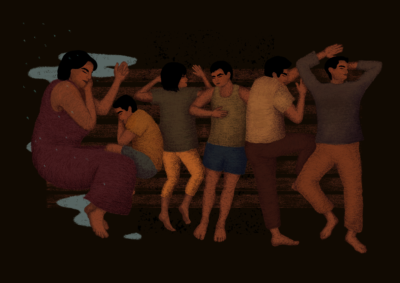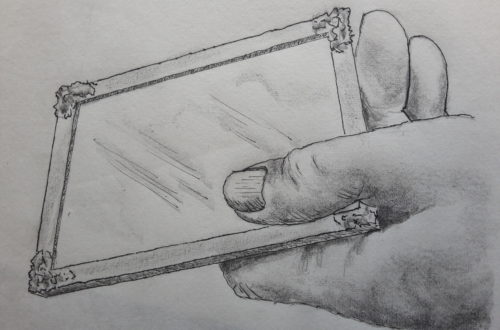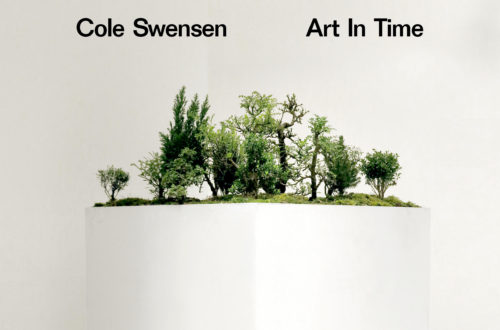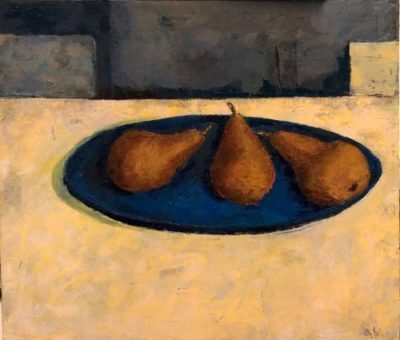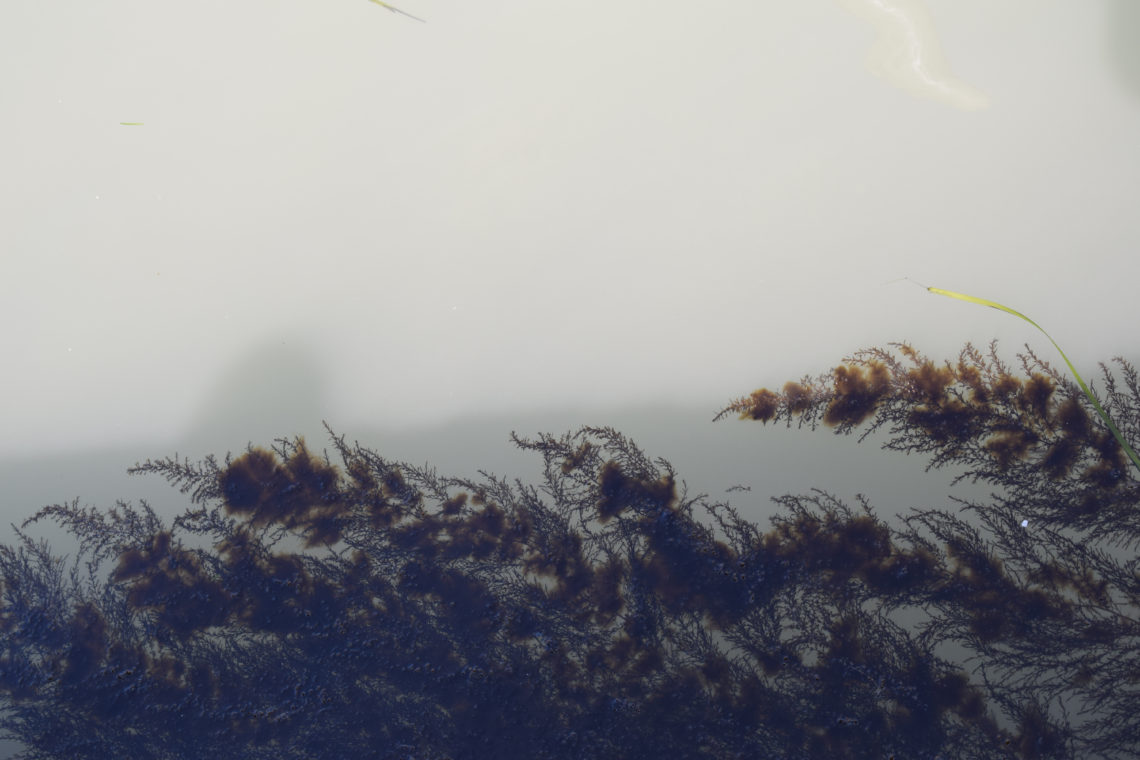
"The Lake" (parts 1 to 3 of Dead Letter Office) and "After Objects" by Marko Pogačar (translated from the Croatian by Andrea Jurjević) Photography by Dora Held
Dead Letter Office is forthcoming in March 2020 by The Word Works.
The Lake
Again that tragic
Mixing up of things and folks.
— Novica Tadić
1.
I am the lake, I set out
in the morning from the slow cocoon of the sun—
sink into myself as if into a silent room or despair.
plants nest in my chest
like wading birds nest in shrubs,
the eternal choir of grass blades.
I am the lake, a dark spot
a parliament of a billion sweet tears.
I dream mostly at night and when I drift
calmly like an island or night sky—
I dream of crisis and democratic changes,
wake up purging out of convictions, thick
lilies pour out my throat, lilies sticky
like lacquer.
I’m a good citizen.
on weekends I drive for miles
through spears of upright flowers,
and leave no trace behind. nowhere does one
part of me beckon another. no one ever
talks about that. what land takes from me, I give it,
what’s withdrawn cannot be lost. everything beautiful
stays beautiful. never mind the sea.
***
2.
The path around my eye is a shackle,
an umlaut of grass and stone that dirt
uses to enclose and restrain me. I can’t step over
or exit myself without changing,
cannot spill out. therefore I sing into the leaves.
climb on the tips of my toes, offer my neck to heights
until it sharpens into a toxic syringe, and from it
shoots a tongue, a birdless flock.
all of me is my voice. I lift myself up. leaves
leave their marks. I enter those breathing ears the way I enter a woman,
or an animal. and there’s nothing else to be written—
those who sing themselves are sentenced with ears,
space that attracts and alienates; like doors, or wars.
the history of the world is the history of ears. if you knock
a street comes out with all its clamor and the night floods you,
cloaks you in nothing.
I was, clearly, a lord. so many rivers on their feet,
so much habit, harmless and dangerous, like love.
everything I brought now crouches inside someone else.
drifts asleep inside them while I talk to them. nonetheless
I am the lake. with the first rain, I slide back into my mute self—
the autumn carries winds from silent waters and soon
every ear floats on my surface, and sinks, rots at the bottom. no other
lake is the lake.
***
3.
I am here. I agree to my place
because place is the only distinction I have. I agree to it all.
my other mirrors in me and I no longer know
where I begin or where I end. I tear at my seams.
a flock of headless birds takes flight from me and falls on your chest. grass,
cows and clouds reflect in my wet plane. the clouds gossip
about their history because it’s vast; it piles up like rocks and violence
in my district. I don’t understand cows, and grass doesn’t speak.
everything deserts me. trying to hold on is like
going out in a summer night, the city peeling off its coat, offering its ribs
to birds, from within and without.
if I try to hold on, I shiver. inside me resides a rapid
and locked room in which you sleep. I am all of your space.
I don’t moo like a cow, I don’t chew the cud,
I don’t pile up. if I smile a swarm of bees jumps
and grounds every sound, every resistance to silence.
I don’t consent to posterity. no place should contain
more than one kind of presence. the evidence are people, language
and disease. now the grass speaks, the sky’s clear, and cows are incomprehensible again.
it’d be stupid to wake up one morning as a cow. how
hard it is to talk, and not to speak to someone. to pour someone’s
green place from you. the place that’s my pork chop. I’m here.
if I ever move, pull me apart and shove all but my fingers deep into
my throat and choke me. place is my fate: no one
has ever walked on me.
*** *** ***
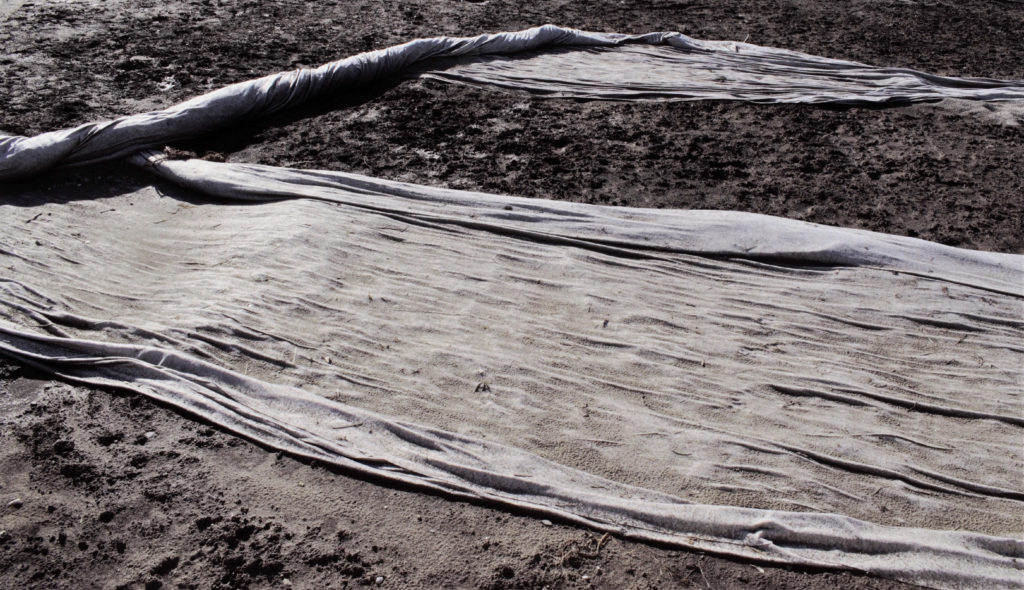
Jezero
Opet ono pogubno
Mešanje stvari I ljudi.
—Novica Tadić
1.
Ja sam jezero, izlazim
jutrom iz trome čahure sunca–
tonem u sebe kao u gluhu sobu i tragediju
gnijezdim bilje u prsima
kao što se u bilju gnijezde močvarne ptice, bilju
koje je oduvijek zborsko pjevanje.
ja sam jezero, tamna točka
parlament milijardi slatkih suza.
sanjam uglavnom noću i kad se pomičem
mirno kao otok i tjedna fotografija neba–
sanjam krizu i demokratske promjene
a kada ustanem iz uvjerenja povraćam, gusti
se ljiljani slijevaju mojim grlom, ljepljivi ljiljani,
poput pokrova.
uredno obavljam svoju građansku dužnost.
vikendom odlazim vozeći miljama
kroz koplja uspravnog cvijeća,
i nigdje ne ostavljam tragove. nigdje dio
mene ne priziva drugi dio. nigdje nitko
o tom ne govori. sve što zemlja od mene uzme dajem joj,
jer se ne može izgubiti oduzeto. sve što je lijepo
lijepo ostaje. a o moru ne razmišljam.
***
2.
Staza oko mog oka je okov,
umlaut trave i kamena kojim zemlja
omeđuje i zaustavlja. ne mogu se prekoračiti.
ne mogu izaći iz sebe ostajući nepromijenjeno,
samo se razliti. zbog toga pjevam u lišće.
penjem se na vrhove prstiju, pružam visini
vrat dok se ne zašilji u otrovnu iglu i iz njega
ispadne jezik, jato bez svojih ptica.
zatim sam cijelo vlastiti glas. uspinjem se. lišće
nas bilježi ni za koga. ulazim u te dišuće uši kao u ženu,
ili životinju. i više nema što biti zapisano–
onaj tko samoga sebe pjeva osuđen je na uši,
prostor koji približuje i udaljava; poput vrata, ili ratova.
povijest svijeta povijest je ušiju. ako pokucaš
iznutra izađe ulica sa svom svojom bukom i noć te oblije,
odjene te u ništa.
bilo sam, jasno, gospodar. toliko rijeka na nogama,
toliko navike bezopasne i opasne, poput ljubavi.
sve što sam donijelo sada čuči u nekom drugom,
liježe u njemu dok mu govorim. i, bez obzira na sve,
jezero sam. s prvom kišom klizim natrag u svoju nijemost–
jesen donosi vjetrove s tihih voda i na meni
ubrzo plutaju sve te uši i tonu, trunu na mojem dnu. ni jedno
drugo jezero nije jezero.
***
3.
Ovdje sam. pristajem na svoje mjesto
jer mjesto je moja jedina razlika. pristajem na sve.
moje drugo se u meni ogleda i više ne znam
otkuda počinjem i gdje završavam. pucam po šavovima.
iz mene izlete bezglave ptice i padnu na tvoja prsa. trava,
krava i oblaci ogledaju se u mojoj ravni. oblaci šuškaju
o svojoj prošlosti jer je golema; gomila se kao kamen i nasilje
u mojoj četvrti. krave ne razumijem, a trava ne govori.
stvari odlaze od mene. pokušam li ih zadržati to je
kao izlazak u ljetnu noć, grad koji skida kaput i pruža rebra
svim pticama, iznutra tako i izvana.
pokušam li ih zadržati tresem se. u meni je jedna brza
i zaključana soba u kojoj spavaš. ja sam cijeli tvoj prostor.
ne mučem kao krava, ne uznosim zemlju i svaku bjelančevinu,
ne gomilam se. ako se nasmijem jato otrovnih pčela skoči
i prizemlji svaki zvuk, svaki otpor tišini.
ne pristajem na potomstvo. više od jedne stvari
ne bi trebalo biti na jednom mjestu. dokaz su tome ljudi, jezik
i bolesti. sad trava govori, oblaka nema, a krave ponovo ne razumijem.
bilo bi tako glupo da se jednog jutra probudim kao krava. kako je
teško govoriti, a ne obraćati se nikome. iz sebe točiti tuđe
zeleno mjesto. mjesto koje je moje ombolo. ovdje sam. ako
se ikada pomaknem iščupaj mi sve osim prstiju i nabij u grlo tako
duboko i snažno da se ugušim. mjesto je moja sudbina: po meni
nitko još nije hodao.
*** *** *** *** ***
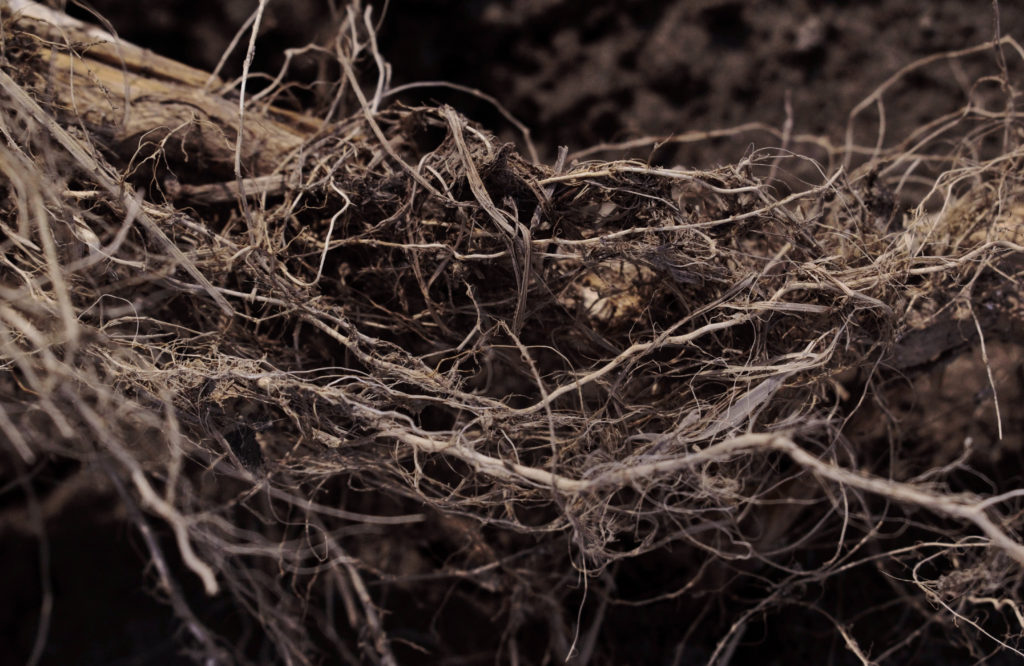
After Objects
With such speed from the sky descends a nothing:
into yesterday, into nowhere, into us, damp woods.
with such speed that the night doesn’t arrive
at the same time for everyone: one rushes the night
to its place, their eyes.
we all remember someone who, just like that, arrived from somewhere:
from a prison, from a room, from a story. he sat and,
like a frantic image, quit himself.
like ice flowers the objects opened up
out of pure spite. they appeared and disappeared like Poland,
in the same burned field. they needed to be
picked and left to dry, somewhere where air and currents
do their work, far from predators.
objects go into that nothing, into the dry and blunt nowhere.
when I leave I usually turn off the lights
thinking only shadows, only darkness can be my witness.
time climbs up
one rainy chronometer where a nothing
does cardio in the morning, spreading and spending itself.
it’s silent and thinks of one clear rule: you can’t
subtract from nothing, you can only add to nothing.
objects, which are in essence pirates, always occupy,
always steal. into a window, into the night, into us, damp
woods where, as if nothing’s going on, they breathe, turn the leaves green.
after objects come other objects.
*** *** ***
Poslije Predmeta
Takvom brzinom spusti se s neba ništa:
u jučer, u nigdje, u mi, mokru šumu.
takvom brzinom da noć ne stigne doći
u istom času za sve: netko je požuri na
njeno mjesto, njegove oči.
svi se sjećamo nekoga tko je, tako, od negdje stigao:
iz zatvora, iz sobe, iz priče. sjeo i,
kao mahnita predodžba, napustio samog sebe.
poput ledenih cvjetova otvarali su se predmeti
u čisto prkošenje. pojavljivali se i nestajali poput
Poljske, u istom spaljenom polju. zatim ih je trebalo
ubrati i pustiti sušenju, negdje gdje zrak i struje
sami obave svoje, gdje nema grabežljivaca.
tamo u ništa, u suho i tupo nigdje odlaze predmeti.
ja kada nekamo odlazim obično ugasim svjetlo
i mislim samo te tama, nigdje, samo te mrak dokazuje.
tamo se uspinje tvoje vrijeme
u jednom kišnom kronometru gdje ništa
ujutro vježba svoju prokrvljenost i širi se, troši.
tamo šuti i smišlja jedno jasno pravilo: od ničeg
nije moguće oduzeti, ništa se samo sa sobom zbraja.
predmeti koji su u svojoj srži pirati, zauzimaju uvijek
nečije, nekome otimaju. u prozor, u noć, u mi, mokru
šumu gdje, kao da se ništa ne dešava dišu, zelene lišće.
poslije predmeta dolaze drugi predmeti.
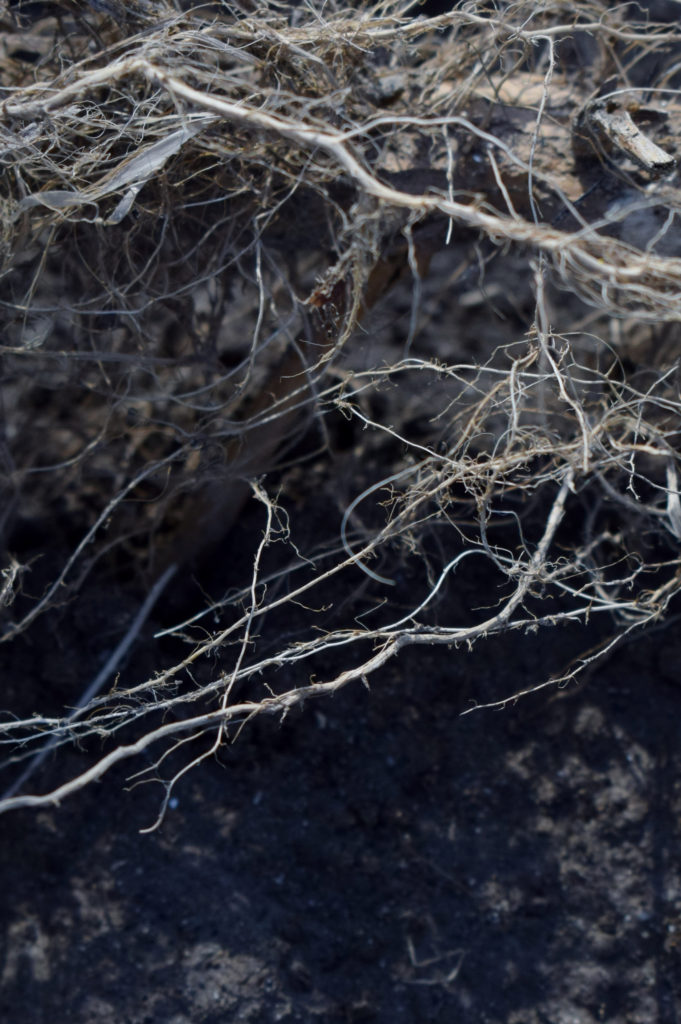
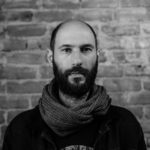
Marko Pogačar is one of Croatia’s leading contemporary poets. Author of five poetry collections, five books of essays, and a short story collection, Pogačar also edited Young Croatian Lyric anthology (2014). His writing has been translated into more than 30 languages.
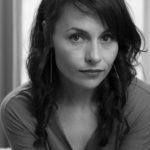
Andrea Jurjević is the author of Small Crimes, winner of the 2015 Philip Levine Poetry Prize, and a translator whose book-length translations from Croatian include Mamasafari (Diálogos Press/Lavender Ink 2018) and Dead Letter Office (The Word Works, 2020).
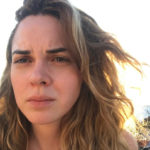
Dora Held is a translator with a camera, born in 1989 in Dubrovnik.
